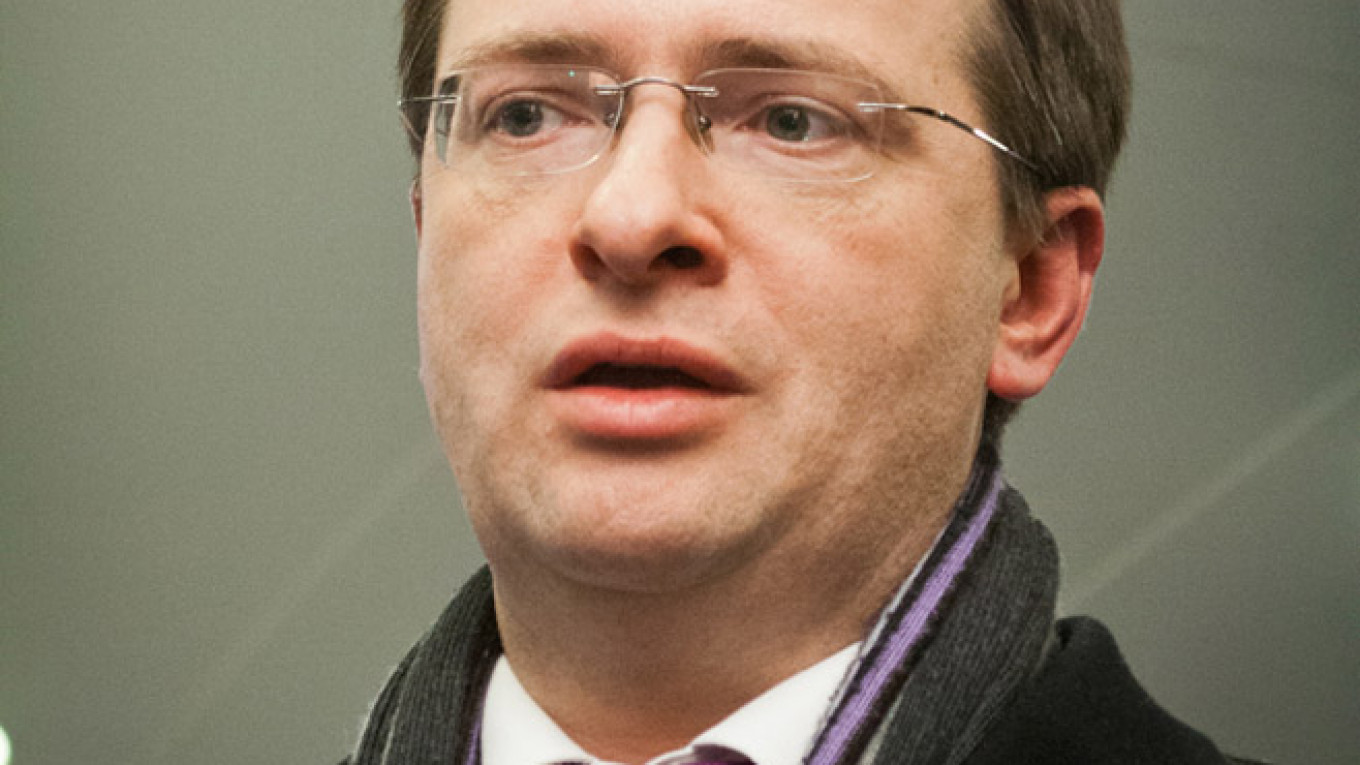The Russian government throws a lot of money at filmmakers — but it has nothing for those who smear the country with "sh-t," the culture minister said.
"The one thing I see as pointless is giving the Culture Ministry's money to people who not only criticize, but smear the elected authorities," Vladimir Medinsky was cited as saying by online news portal Fontanka.ru on Tuesday.
"I mean those who make movies based on the 'Russia is sh-t' principle," the top culture official said.
He denied that the ministry sees its mission at glorifying the Kremlin, however.
The flamboyant minister also spoke about dropping Dostoevsky and Tolstoy from the school curriculum because he was "bored" by the latter's "Anna Karenina" when he was in school and only recently learned to appreciate it.
The "smearer"-bashing appears to be a jab at Russia's most respected documentary festival, the ArtDocFest, the seventh installment of which opened in Moscow this week.
Medinsky said last month he was withdrawing state support for ArtDocFest because of the "anti-state" stance of its president, documentary maker Vitaly Mansky.
Ukrainian-born Mansky, who has scored awards at prestigious film festivals in Locarno and Karlovy Vary, has blasted Russia for its involvement in the Ukraine conflict.
This is not the first time Medinsky has combined politics with culture: Earlier, he banned Russia's top architecture expert, Grigory Revzin, from heading Russia's pavilion at the Venice Biennale — also over an anti-war stance on Ukraine.
Medinsky, a PR specialist by profession, last week also compared modern art to illegal drugs and the works of Russian artist Erik Bulatov — whose paintings sell for millions of dollars — to Hitler's artworks.
Russian cultural authorities have ramped up restrictive activity recently, banning or censoring a handful of acclaimed films and artists.
The list includes Cannes-winning films "Leviathan" and "Blue Is the Warmest Color," U.S. rock band Bloodhound Gang and a children's puppet show deemed to "promote homosexuality."
The government earmarked 5.7 billion rubles ($105 million) for the film industry this year.
Contact the author at a.eremenko@imedia.ru
A Message from The Moscow Times:
Dear readers,
We are facing unprecedented challenges. Russia's Prosecutor General's Office has designated The Moscow Times as an "undesirable" organization, criminalizing our work and putting our staff at risk of prosecution. This follows our earlier unjust labeling as a "foreign agent."
These actions are direct attempts to silence independent journalism in Russia. The authorities claim our work "discredits the decisions of the Russian leadership." We see things differently: we strive to provide accurate, unbiased reporting on Russia.
We, the journalists of The Moscow Times, refuse to be silenced. But to continue our work, we need your help.
Your support, no matter how small, makes a world of difference. If you can, please support us monthly starting from just $2. It's quick to set up, and every contribution makes a significant impact.
By supporting The Moscow Times, you're defending open, independent journalism in the face of repression. Thank you for standing with us.
Remind me later.







